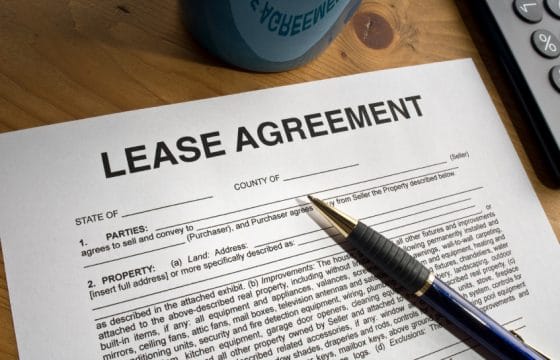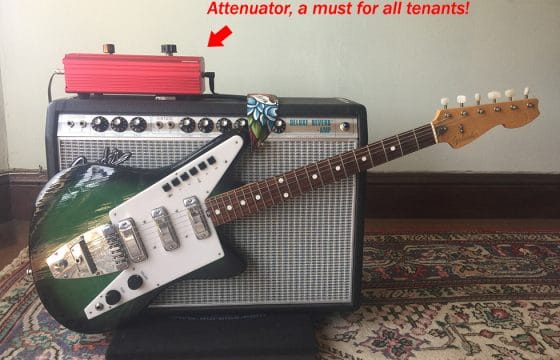
My Neighborhood’s Too Dangerous, Can I Break My Lease?
Neighborhood’s too dangerous.
In July, my wife and I moved out of a great roommate situation in San Francisco into our first apartment as a couple in Oakland’s Rockridge neighborhood. At the time the move made perfect sense and for the first few weeks things were excellent. We finally had our own place, we discovered that we have the best neighbors, and being 4 blocks from BART for under $2,000.00 is something we could only dream about in the city.
On the evening of August 16th all of our good feelings changed. We were robbed at gunpoint about 50 yards from our front door. We soon found out that other robberies had happened on our street during the month of August. The robberies have continued in Rockridge within a mile from our home. Most of them at night, but two committed this weekend happened during broad daylight, Saturday 4:15pm on a residential street like ours and Sunday at 2:15pm in front of a busy cafe on College Avenue.
Last Thursday at the library in Rockridge, Captain Trobiano from the Oakland Police Department met with concerned neighbors to talk about the recent spate of robberies. His advice was to hire private security for the neighborhood. The Oakland Police Department doesn’t seem to have the resources to keep the neighborhood safe.
One of the reasons my wife and I moved to Rockridge was to take advantage of the many shops, restaurants, and watering holes that dot College Avenue. Now we are terrified to go out because our neighborhood’s too dangerous. I often work late at night and am fearful that I will be mugged while walking from my car to my front door. I hate leaving my wife home alone at night while I work.
We are wondering whether you know if we can get out of our lease? What will the financial penalties be?
I’m sorry to hear about your experience and glad to assume by your email that neither of you were hurt.
Certainly, you have the right to move, to break your lease. Often tenants don’t quite understand that they can always terminate a lease before it expires. Despite what you may have been told, landlords cannot force tenants to live in a unit.
If you terminate a lease early you will be in breach of the lease unless your move can be blamed on the landlord–the roof caves in or the landlord’s direct action forces you to move. As you know, however, there is nothing the landlord can do to prevent this type of crime, so you may incur some financial liability for breach of the lease.
When a tenant breaches a lease, in this case by moving out before the end of the term, a landlord suffers damages. These damages are called “expectation damages.” If you promised to pay $1,900.00/month for 12 months, then the landlord has the right to expect that amount of income for a year. That’s why one hears that tenants can be charged for the rent for the rest of the term of the lease if they move early. That could be true if the law allowed the landlord to sit on his ass and do nothing to rent the unit.
The law requires that the landlord “mitigate” or minimize his damages. He must attempt to rent the unit at the same rate. Because you recently rented the unit, I assume the rent is priced close to market rate. The landlord shouldn’t have any trouble re-renting it for the same price, more or less.
The law is also clear that the landlord cannot be “unjustly enriched.” That means that he cannot collect damages (rent) from you for any time he rents the unit to new tenants.
How do you calculate your potential damages?
Read your lease. If there is a clause that defines a preset fee as damages you may be liable to pay the fee. You should check with a lawyer regarding such a clause. In some cases they may not be legal or may allow the landlord to be “unjustly enriched.”
You should try to give the landlord thirty-days notice of your intent to vacate–in writing, always in writing. Your correspondence during this period should be in writing, email will suffice.
Let’s say you give the landlord notice that you will move out on September 15. If the landlord rents the unit to new tenants for the same price you are paying and their tenancy begins on September 16, the landlord won’t have any damages beyond incidental costs like advertising the unit. Assuming you leave the place in the same condition that you received it, the landlord should also return your full security deposit.
If the rental market has softened in Rockridge and the landlord can only rent the unit for $1,800.00, you may be liable for additional rent of $100.00 per month until expiration of the lease–approximately $900.00. The landlord should be able to deduct that from the security deposit.
Practically, you should make it as easy as possible for the landlord to exhibit the unit to prospective tenants. Work with the landlord to make sure any other issues that arise during the rental process are resolved smoothly.
You should not, however, agree to assume responsibility for the entire rental process, like maintaining the advertising and arranging the showings yourself. I’ve heard too many stories in which tenants have done all the work to rent a unit only to find that the landlord refuses each and every one of the applicants and demands rent for another month.
Some landlords will see this as an opportunity to collect rent without putting up with pesky tenants. If you give notice to vacate, that’s exactly what you should do. Despite any threats from the landlord, do not cave into the suggestion that you continue to pay rent after you’ve moved.




Hello can l break my lease after 6 months of threats. I have made complaints to the office and police but l still have this problem. Please help
Thank you for the valuable information. It has given to deal with residents complaining about each when there are fair housing issues.
I just made moved in here and there is constantly people running in and out all day and all night. Slamming doors and taking my y parking spot.my landlord spoke to them but it keeps happening. Can I break my lease? I have been here less than a week.
can they charge you for the full amount of breaking the lease or just for the last few months.im sacred where i live.i have had neighbors threaten to beat me and my son up and kill my cat.alos break into my apartment while im at work.no one will do anything like the police or the landlord.i was told theres nothing they can do til somethig happnes
I’m living in a place,that the people upstairs have pulled a gun on me, threatens to shoot my dog,complains if I have company at 6pm at night .they sell drugs,offered or spoke to my daughter about this,the landlord knows I have cancer,I need help with rides,also I have small grandchildren hear,we are all afraid of the people that live upstairs,I’ve spoke to he land lord,they don’t care,tell me to call the police,they are allowing a man that’s not sapose to be hear on the property,they have bed bugs upstairs,my grandsons getting bit,but idk if it’s bed bugs.i want out o my lease,they said know,tell me I can’t have fiends over so I feel safe,,,due to parking,the people upstairs have complained about us,our parking,that leaves them plenty of room to park..I don’t need this stress,I moved fir a place I lived at for ten years with no complaints,I’ve gotten a complaint everyday hear,again I have cancer,these people are gonna kill me quicker than the cancer,what can I do,also they back dated a lease,I never saw my lease till almost three months later…I would think them lining on the paper work would breach the contract alone,it’s sapose to be peace and quite hear,,,it’s not people in and out all hours,waking me and my grand children.they ignore the fact the guy with the gun is in the building,but tell me my friends gotta leave,,,